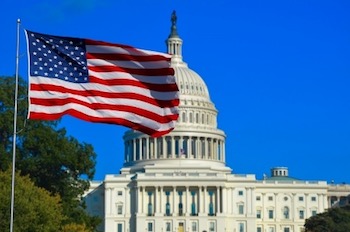 When the United States Supreme Court maintained the Brulotte rule last summer on the basis of stare decisis, it entrenched outdated economic reasoning. The Brulotte rule, established by the Supreme Court in 1964, prevents patent royalty contracts that extend royalty calculation beyond the expiration of the patent. After fifty years of legal and economic innovation, the rule of reason from antitrust law has been demonstrated as a preferable alternative to Brulotte. In Kimble v. Marvel, the Supreme Court found no error in the petitioner’s analysis that reviewing post-expiration patent royalties (PEPRs) under the rule of reason was economically preferable to Brulotte, but emphasized that Congress is the proper venue for reform.
When the United States Supreme Court maintained the Brulotte rule last summer on the basis of stare decisis, it entrenched outdated economic reasoning. The Brulotte rule, established by the Supreme Court in 1964, prevents patent royalty contracts that extend royalty calculation beyond the expiration of the patent. After fifty years of legal and economic innovation, the rule of reason from antitrust law has been demonstrated as a preferable alternative to Brulotte. In Kimble v. Marvel, the Supreme Court found no error in the petitioner’s analysis that reviewing post-expiration patent royalties (PEPRs) under the rule of reason was economically preferable to Brulotte, but emphasized that Congress is the proper venue for reform.
One year later, Congress has yet to address the issue.
Though much of today’s proposed patent legislation is controversial, removal of the Brulotte rule remains largely uncontested by analysts and has historically garnered support on both sides of the political divide. Replacing the Brulotte rule with the rule of reason from antitrust law would improve market efficiency and spur innovation by increasing the dissemination of intellectual property in the marketplace. To unlock those benefits, Congress must modernize how Federal Courts evaluate post-expiration patent royalty cases.
To better understand the benefit for post-expiration patent royalties, it is important to remember how royalties are calculated. There are two basic variables that determine the value of a sales royalty: the percentage of price and the duration of payment. Under current policy, patent royalties can only be calculated and paid based on product sales occurring within the life of the patent. With the duration of the royalty locked, the only method to reach the fair value of the patent is to increase the royalty percentage. That limitation creates inefficacy, especially in markets where profit margins are slim. If the fair percentage for patent rights is greater than the profit margin for the product, a licensing agreement is less likely to result. Without a licensing agreement, the patent owner is forced to pursue litigation or remain unpaid for their intellectual property. PEPRs would allow the contracted parties to optimize both the royalty percentage and duration to obtain a fair licensing outcome.
If post-expiration patent royalties are to be allowed, a mechanism to address abuses is necessary. The most commonly proposed standard is the rule of reason from antitrust law.
The rule of reason generally requires courts to balance competitive interests, which confirms that a contract is competitive, unlike the current per se standard that always considers PEPRs to be unreasonable, regardless of economic circumstances.
The per se standard is traditionally applied to actions that are always or almost always harmful, such as drunk driving. Given that the Supreme Court, economists, businesses, and legal analysts agree PEPRs are economically beneficial and rarely anti-competitive, it is illogical and economically detrimental to apply the per se standard in these instances. Instead, the rule of reason should be utilized to maximize market freedom while limiting abuses.
In Kimble v. Marvel, Marvel utilizes several arguments against employing the rule of reason to regulate PEPRs. The first is that PEPRs are unnecessary, as the current system allows for amortization, or delayed payoff of debt, which spreads the loss from the royalty over an extended period of time. Amortization requires royalties to be calculated on the sales occurring within the life of the patent, but this precludes consideration of long term product success. Royalties extending beyond the expiration of the patent are compensation for use of the patent rights while the patent is still applied. If the patent rights are exceptionally valuable, longer term compensation may be necessary to maximize allocative efficiency.
Marvel also expressed concern about the inadequacy of antitrust standards to address patent contracts, as support by amicus briefs from Robin Feldman. While antitrust law can’t replace patent law, narrowly applying it to PEPRs is practical, as the primary question in a PEPR case is competitive fairness. Since 1989, the European Union has regulated post-expiration patent royalties with the rule of reason, and only one case has questioned the competitiveness of a PEPR. Both logically and empirically, the rule of reason would be an adequate means of protecting against potentially anti-competitive PEPR contracts.
Aside from advantages to the licensee and licensor, PEPRs create benefits for consumers as well. According to the results of an FTC hearing, post-expiration royalty metering “tends to disseminate technology broader oftentimes than a single price.” Broader dissemination of technology provides greater opportunity for innovation, and ultimately results in better products with lower prices for consumers.
While both the economic and legal reasoning behind Brulotte have been firmly rejected by the Supreme Court, the per se rule for post-expiration patent royalties remains in place. Court rulings have emphasized that Congress has the responsibility to change the legal standard.
Earlier this year, we released an article in the Journal of Intellectual Property Law & Practice reviewing the legal background, economic justifications, and Congressional history of the rule of reason as applied to post-expiration patent royalties and proposed a narrow policy reform that would replace Brulotte with the rule of reason. With decades of research supporting reform and a prompting from the Supreme Court, it is time for Congress to update the laws governing post-expiration patent royalties.
The per se standard’s assumption that all post-expiration licensing royalties are anticompetitive is highly flawed and diminishes the overall value of patent licensing. The per se standard has already been abandoned in nearly every other antitrust case in favor of flexible economic analysis with the rule of reason. Consistently used in other areas of antitrust, the rule of reason has proven to be an effective mechanism for analyzing and balancing the economic interests of contracted parties. The per se requirement reaffirmed in Kimble serves to bind contract negotiators in determining optimal royalty duration and courts in issuing fair judgments on licensing royalties.
In the Duke Law & Technology Review, author Michael Koenig emphasizes that the per se standard won’t disappear without Congressional action, “…unless Congress acts to change the statute’s wording, the world of patent law will be stuck with the Brulotte rule for quite some time.” One year after Kimble, optimal patent royalties are still prevented by Brulotte. It is time for Congress to replace the outdated per se standard with the rule of reason for post-expiration patent royalties.

![[IPWatchdog Logo]](https://ipwatchdog.com/wp-content/themes/IPWatchdog%20-%202023/assets/images/temp/logo-small@2x.png)


![[Advertisement]](https://ipwatchdog.com/wp-content/uploads/2024/04/Patent-Litigation-Masters-2024-sidebar-early-bird-ends-Apr-21-last-chance-700x500-1.jpg)

![[Advertisement]](https://ipwatchdog.com/wp-content/uploads/2021/12/WEBINAR-336-x-280-px.png)
![[Advertisement]](https://ipwatchdog.com/wp-content/uploads/2021/12/2021-Patent-Practice-on-Demand-recorded-Feb-2021-336-x-280.jpg)
![[Advertisement]](https://ipwatchdog.com/wp-content/uploads/2021/12/Ad-4-The-Invent-Patent-System™.png)







Join the Discussion
6 comments so far.
Anon
June 14, 2016 06:01 pmAnonymous,
Your use of the (almost) pejorative “rent,” while completely overlooking the point of freedom to contract to timeshift payments tells me that you are just not either listening or paying attention to what is being said.
Further, people “pay rents” for items not covered by patents EVERY DAY.
You are fixated on the wrong things and are just not thinking this issue through – get beyond the buzz words and the unthinking mantras, please.
Let me know when you decide to pay attention.
Anonymous
June 14, 2016 10:09 amI agree that freedom to contract should be liberal and that post expiration patent royalties are not anti-competitive. But charging rent for something you do not own is per se invalid, there is no place to apply a rule of reason analysis. I can’t put on an orange vest and charge you to park your vehicle in a public space, and I can’t enforce a lease contract allowing you to live in an foreclosed home owned by the bank, and should you freely enter into a contract to pay me a penny for every liter of air you breathe, you can safely stop paying the fee without penalty. If a license agreement provides a 1% royalty for practicing a patent after its term has expired, that provision is per se null and void, because the patent does not belong to the licensor.
What you are trying to accomplish can be done by copying the patent claims into the contract and writing a license provision without reference to the patent itself. You might have a hard time finding a court construe your claims when the licensee defaults.
But if you want to rely on the patent rights granted by the government to an inventor to exclude others from practicing the invention for a limited time, you can’t do it past that expiration date.
Anon
June 14, 2016 06:01 amLeslie Ware – absolutely correct.
Freedom to contract though, much like freedom of personal property, seems to be one of those things that the Court feels needs their extra special attention (when there is a aspect involving patents).
The Court is addicted to its own writing from the bench. It is beyond evident that the Court is not merely interpreting patent laws as written by Congress, but are aiming to have their own fingerprint in the nose of wax, or their own wax seal on even getting to the words of Congress, stuffed behind an envelope of the Court’s making (maybe their seal is like this: https://img0.etsystatic.com/033/0/9247794/il_570xN.628005656_i7k8.jpg )
Leslie Ware
June 13, 2016 11:26 amIt would certainly be improper for a contract to license a patent that has already expired. Licensees would have no reason to pay for the rights to a patent past its remaining term. The rule of reason merely allows the calculated payments for a patent royalty to extend past the patent’s expiration date. Consequently, a contract with post-expiration royalties would reflect the remaining value of the patent at the time of the licensing agreement. For example, if a patent has ten years of remaining validity, the fair value of a royalty may be 2% of sales each year the patent is in force (ten years). However, market factors such as high entry costs or low profit margins may make this payment impractical. A post-expiration royalty would allow the royalty duration to be extended past expiration, likely at a lower rate. In the previous example, a 1% royalty for twenty years may be more feasible. The calculated value of the patent doesn’t increase, but the licensor and licensee have more flexibility in creating a mutually agreeable royalty. Even though the sold had product no longer infringes on the patent post-expiration, royalties would still be collected for the duration determined by the contract. Post-expiration enforcement would be a matter of contract and antitrust law, rather than patent law. Thus, the licensee’s practice of the patent (and assessment of validity) would only be applicable in determining whether or not the royalty should be paid at all.
Anon
June 13, 2016 10:13 amNot so, Anonymous. People contract all the time for services related to items in the public domain. I think that you have focused too closely on the patent/expired patent angle and missed the plain fact of what can be covered in contracts is not at all limited to such an angle.
There would be a “better argument” if the case involved coercion of some sort to find that one party was forced against its will to sign a contract, but such is just not present in any cases that I have seen related to this particular issue.
Anonymous
June 12, 2016 03:19 pmIt seems that there is a significant rationale for the Brulotte rule that has not been discussed in any of the related rulings. Basically, how can a contract impose a license fee for property that is owned by the public? For instance suppose a licensing agreement were made under the proposed rule of reason. After the 20 year patent term has expired, the lisensee decides his product does not practice the licensed patent, so he stops paying royalties. How can the licensor obtain relief? Normally he would sue for infringement in Federal District Court where he would have to prove validity and infringement. If he pursues a tort claim, then he will be asking the state court to construe claims and adjudicate all the other patent related disputes. So even if Brulotte is overturned and post expiration patent royalty contacts are held valid, they will be unenforceable.